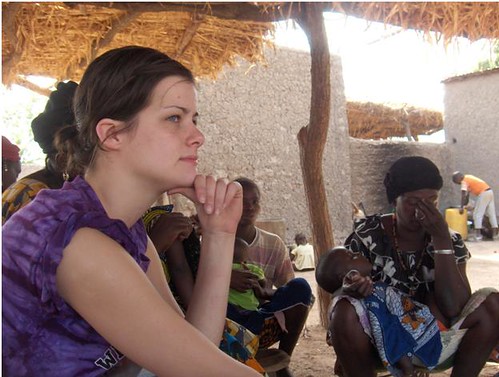
This post is part of the Science Tuesday feature series on the USDA blog. Check back each week as we showcase stories and news from the USDA's rich science and research portfolio.
In 2004, as a junior at Montana State University (MSU), Ashley Williams knew she wanted to use her geography degree to make a difference internationally. She had no idea that agriculture would ever play a role in making that dream come true.
But that’s what happened when Williams found herself in a small farming village of 1,000 people in Sanambele, Mali, after a chance encounter with MSU entomology professor Florence Dunkel.
“Agriculture? I never even considered it. Now I work as a Forest Service hydrologist and collaborate with farmers on stream restoration projects to protect the environment,” Williams said.
Dunkel was the recipient of a USDA Higher Education Challenge Grant from the National Institute of Food and Agriculture. She used the grant money to give her students experiential learning opportunities that would prepare them to enter the agricultural science workforce.
“The Challenge Grant unbound my students from the narrow definitions of agricultural education,” Dunkel said.
From early research efforts, Williams learned that diarrhea, mainly from poor water quality, was a major contributor to childhood death. But when she got to Sanambele, the community had other ideas about what her mission should be. Working with the Mali Agricultural Research Organization (IER), she learned through participatory, gender-based focus groups with local famers that malaria was the most feared killer of children.
Williams credits Sidy Ba, a professor at Mali’s agricultural college, and IER’s Assa Kante with helping her ask the right questions in a culturally sensitive way, and for helping her get permission from village chiefs to conduct her surveys. She is now working with Ba on a project relating to diarrhea and water quality in villages near Mopti, Mali, the results of which they plan to publish.
“Florence gives you a lot of freedom,” Williams said. “Through her program, however, I developed my interest in science and learned how to conduct research that has carried me into graduate school and a future career in water quality.”
